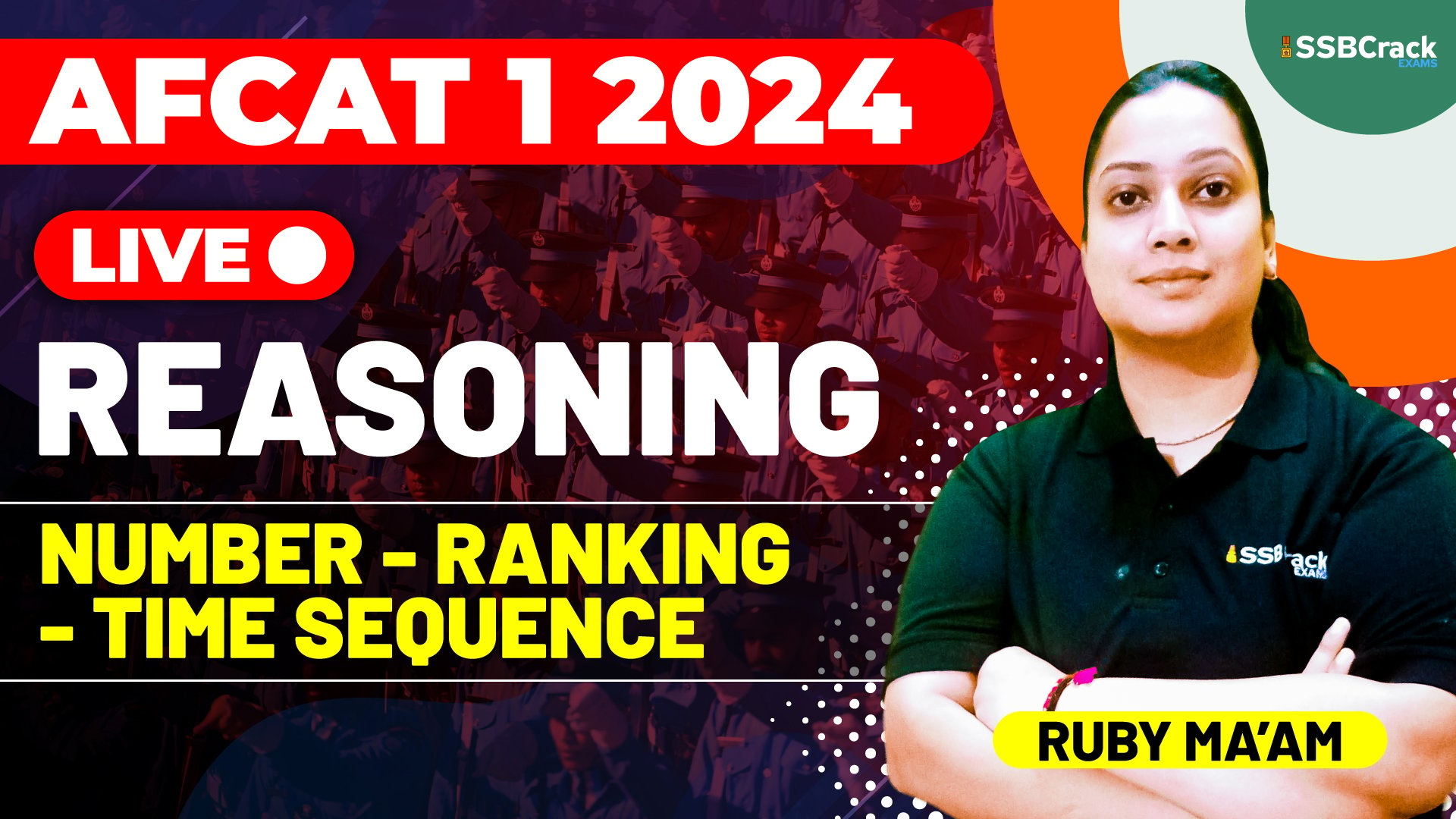The Reasoning section in the Air Force Common Admission Test (AFCAT) demands a combination of analytical skills, logical reasoning, and efficient time management. Aspirants must approach this segment strategically to maximize their scores. In this guide, we will explore effective strategies for tackling the Reasoning section, focusing on ranking and time sequence questions.
Number – Ranking & Time Sequence
- Understand the Basics: Before delving into specific question types, ensure you have a strong understanding of the basic concepts of reasoning. This includes topics such as analogy, series, classification, coding-decoding, and logical reasoning. A solid foundation will enable you to approach more complex questions with confidence.
- Identify High-Scoring Topics: Analyze past AFCAT papers to identify reasoning topics that carry higher weightage. Prioritize your preparation by focusing more on these topics. Common high-scoring areas include series completion, analogy, and coding-decoding.
- Practice Regularly: Practice is the key to mastering reasoning. Set aside dedicated time for daily practice sessions, covering various types of reasoning questions. Regular practice not only improves your understanding of different concepts but also enhances your speed and accuracy.
- Develop a Systematic Approach: Develop a systematic approach to solving reasoning questions. For example, when dealing with ranking and time sequence questions, understand the rules governing the arrangement and practice solving problems step by step. This systematic approach ensures accuracy and saves valuable time during the exam.
- Time Management for Ranking and Time Sequence: The Reasoning section in AFCAT has a fixed time limit. Efficient time management is crucial. Allocate a specific amount of time for each type of question within the section. For ranking and time sequence questions, focus on quick identification of patterns and logical sequences.
- Prioritize Easy Questions: While attempting the Reasoning section, start with questions that seem easier to solve. This not only helps you accumulate marks quickly but also boosts your confidence for tackling more challenging problems later. Mark questions you find difficult and return to them if time permits.
- Use Shortcuts Wisely: Familiarize yourself with shortcut techniques for solving ranking and time sequence problems. While these shortcuts can save time, use them judiciously. Ensure you understand the underlying logic to avoid errors during the exam.
- Review and Learn from Mistakes: After practicing, thoroughly review your answers and identify any mistakes. Understand the reasoning behind the correct solutions. Learning from mistakes is crucial for improving your problem-solving skills and minimizing errors during the actual exam.
- Take Timed Mock Tests: Simulate exam conditions by taking timed mock tests focused on the Reasoning section. This not only helps you practice under time constraints but also allows you to assess your performance and identify areas that need improvement.
- Stay Calm and Focused During the Exam: Maintain composure during the exam. If you encounter a challenging question, move on to the next one and come back later if time permits. Staying calm and focused is essential for efficient problem-solving.
Conclusion:
A systematic and strategic approach to reasoning, especially in ranking and time sequence questions, is vital for success in the AFCAT exam. Regular practice, efficient time management, and a thorough understanding of reasoning concepts will contribute to your overall performance. By following these strategies, AFCAT aspirants can enhance their reasoning skills and increase their chances of success on exam day.







